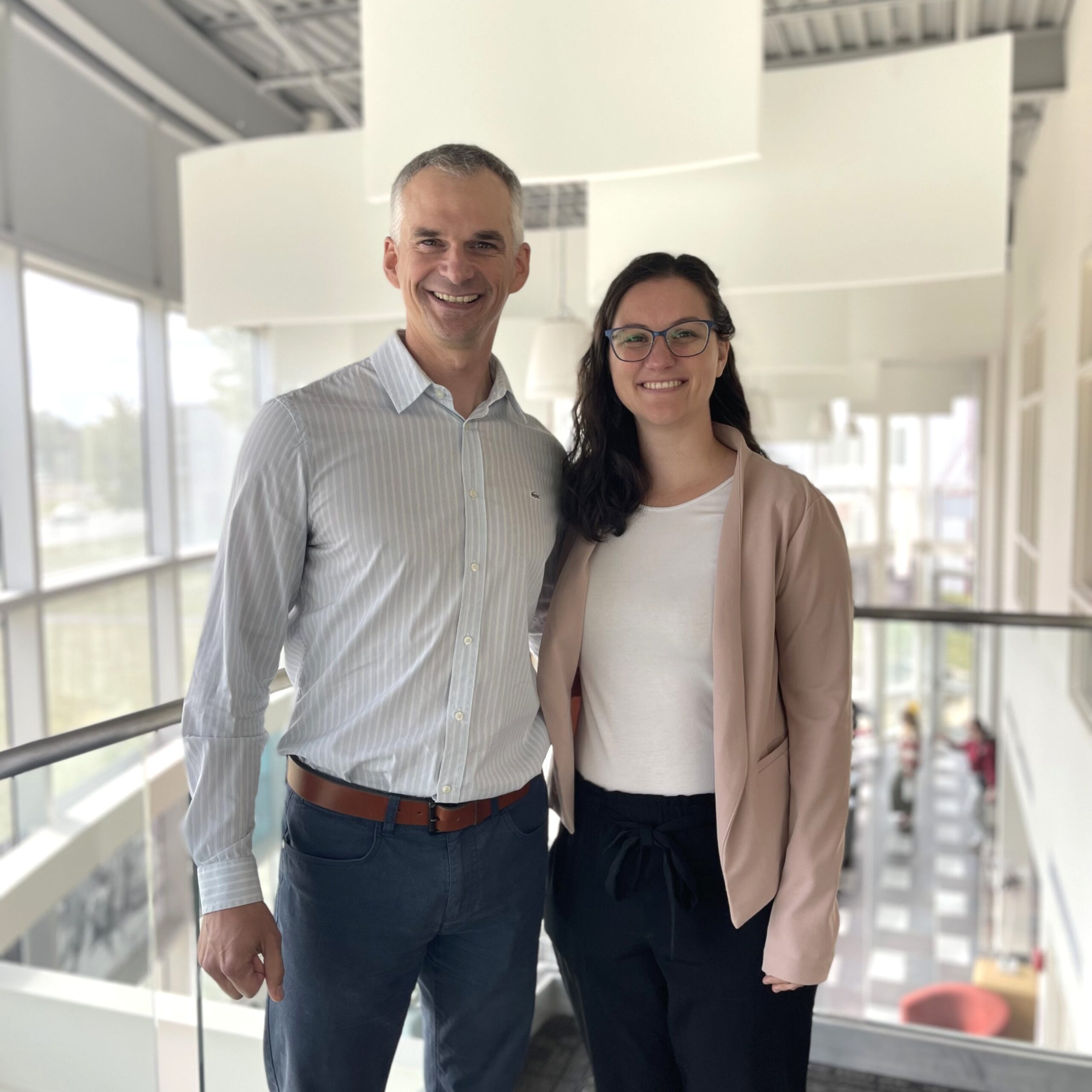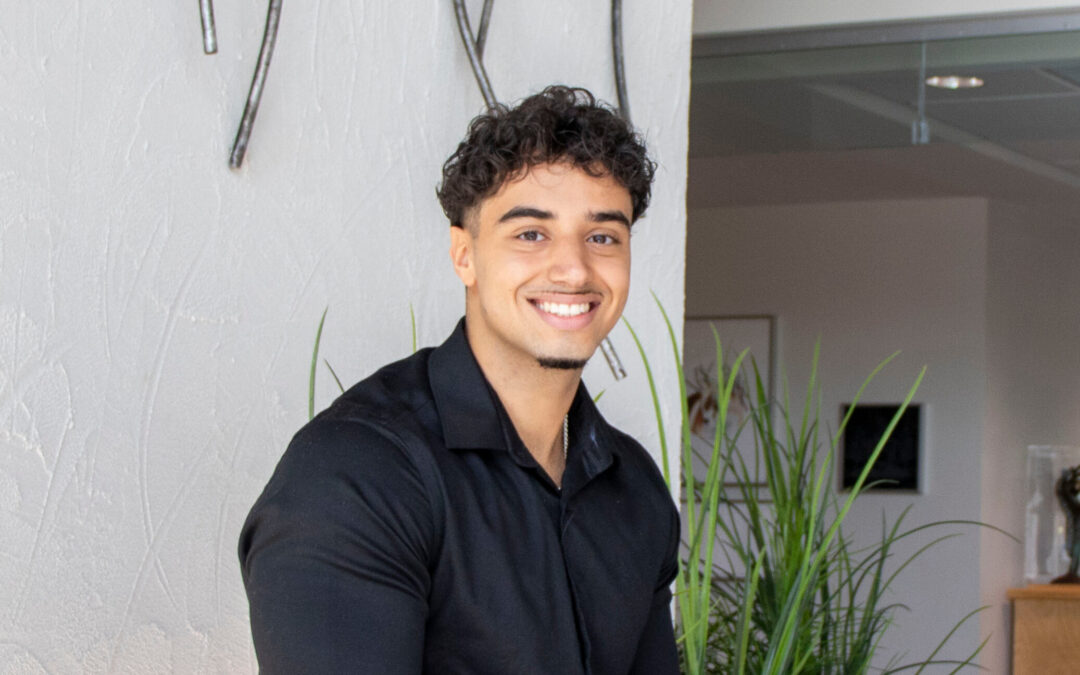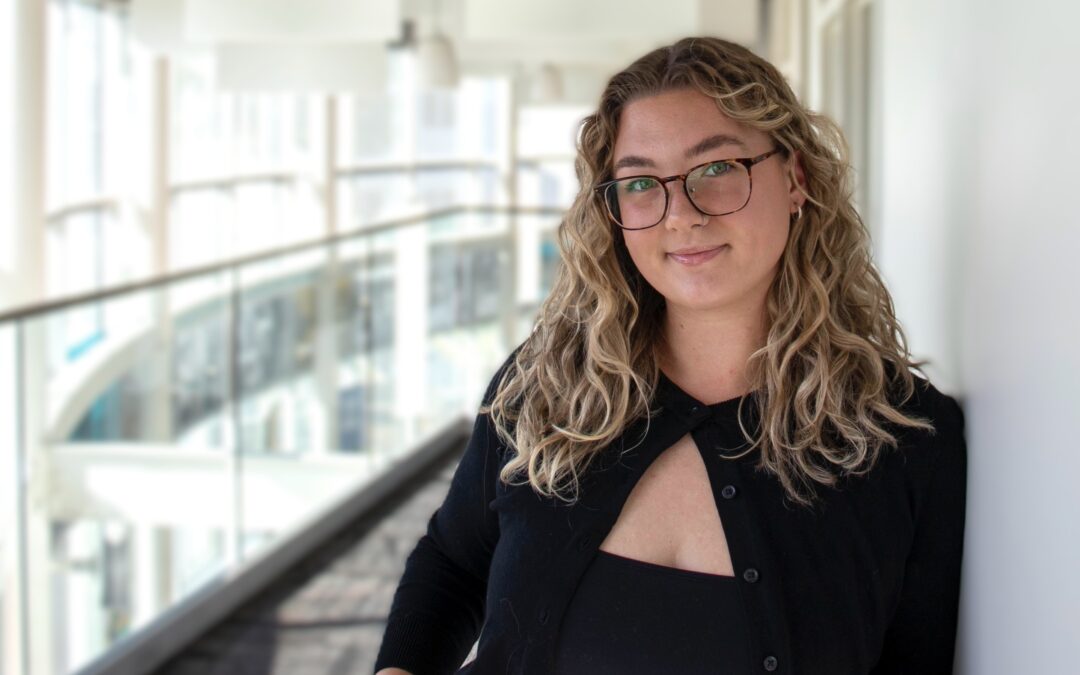
by Julie Dufresne | Oct 15, 2025 | Students
Pamela Tanguay is the most recent member of the team to have defended her doctoral thesis, on September 19. Her study, which compares a hybrid cardiac rehabilitation program (combining in-center and at-home sessions) with a traditional program, was conducted across all cardiac rehabilitation centres of the Vitalité Health Network under the supervision of Prof. @Mathieu Bélanger and Prof. Nicole Marquis from the Faculty of Medicine and Health Sciences at the Université de Sherbrooke. The study stands out, among other things, for its human-centered approach, where patients and healthcare professionals were involved throughout the research process. The findings show that the impacts of the hybrid and traditional programs on patients are similar. Given that the hybrid program partially reduces pressure on the healthcare system and offers greater flexibility to patients, this is a very encouraging result for the Vitalité Health Network. The study also provides several avenues for enhancing the current hybrid program, if needed.

by Julie Dufresne | Oct 15, 2025 | Uncategorized
Originally from Halifax, Nova Scotia, Muhammad Bensalim holds a Bachelor of Science in Molecular Biology from Université Sainte-Anne, where he developed a strong foundation in human physiology and cellular health. His deep interest in the connection between science and human performance has shaped his academic journey and continues to drive his current research. As part of his research-based master’s program in health sciences at Université de Sherbrooke and supervised by Professors Saïd Mekari and Myles O’Brien, Muhammad is investigating the effects of hypertrophy training on autonomic cardiovascular function. His thesis project aims to better understand how resistance training, beyond its impact on muscle mass, can influence heart health and overall well-being — an approach that bridges exercise physiology with preventive health. Outside of academia, Muhammad is actively involved in the fitness and strength sports community. A nationally ranked powerlifting athlete, he also shares his expertise as an online coach, helping athletes and enthusiasts reach their goals.

by Julie Dufresne | Oct 15, 2025 | Students
Jocelyn Waghorn is undertaking a Master of Science in Rehabilitation Research at Dalhousie University and has recently become a member of the IMPACTS Lab team. She is co-supervised by Dr. Myles O’Brien (Université de Sherbrooke) and Dr. Rebecca Moyer (Dalhousie University). With a background in kinesiology and an Honours BScK from Dalhousie, Jocelyn’s research interests span cardiovascular health, physical activity, and the complexities of chronic conditions like osteoarthritis. Her thesis, » Influence of Health Factors on the Relation Between Frailty and Knee Osteoarthritis », explores the longitudinal relationship between frailty, the incidence of knee osteoarthritis, and physical function. She aims to assess how specific health factors such as physical activity, nutrition, and social engagement, may influence this connection. Outside of her academic work, Jocelyn enjoys hiking and discovering new places and activities across New Brunswick. She also puts her kinesiology training into practice by volunteering as an athletic trainer with local basketball teams—a role she’s proudly held for several years.

by Julie Dufresne | Oct 15, 2025 | Students
Emily MacDonald is currently pursuing a Master of Rehabilitation Research at Dalhousie University and has recently joined the IMPACTS Lab Team. Her research is supervised by Dr. Myles O’Brien (Université de Sherbrooke) and Dr. Olga Theou (Dalhousie University). Her thesis, « Does Physical Activity Explain the Link Between Frailty and Cognitive Health among Older Adults in the Community and Long-Term Care? », aims to better understand how movement and activity influence cognitive health and independence in aging populations. As part of her research, Emily will conduct in-depth assessments with older adults living both independently and in long-term care settings. Her broader interests focus on the impact of aging and physical activity on cognition, and on developing mobility-based interventions to improve quality of life in long-term care environments. Emily holds a Bachelor of Science (Honours) in Neuroscience from Dalhousie University. She is passionate about aging research and is committed to contributing to healthier, more independent lives for older adults. Welcome Emily!

by Julie Dufresne | Sep 18, 2025 | Students
Welcome to Jasmine Allain, a master’s student in health sciences research at the Université de Sherbrooke, based at the Centre de formation médicale du Nouveau-Brunswick. Jasmine is interested in improving cardiovascular health through community-based programs that promote physical activity, particularly among aging populations.
Her research project, supervised by Professors Myles O’Brien and Saïd Mekari from the Faculté de médecine et des sciences de la santé – Université de Sherbrooke, focuses on designing a community cardiovascular health program by exploring effective strategies for engagement and adherence. With a bachelor’s degree in kinesiology and hands-on experience in cardiac rehabilitation and mobilization programs, Jasmine works alongside various healthcare professionals to encourage active and personalized lifestyle habits.
Alongside her academic journey, Jasmine also stands out in university sports as a volleyball player for the Université de Moncton, where she is entering her fifth and final season. She also gives back to her community by volunteering with local volleyball clubs across New Brunswick.





